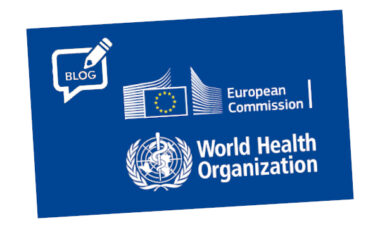 The European Commission is under fire for not being quite open enough about its relationship with the tobacco industry. Last month the European ombudsman questioned why many arms of the Commission did not fully disclose all their meetings with industry representatives; Jean-Paul Garraud, a rightist Member of the European Parliament from France, subsequently waded in on the same issue, and unless there is a quick resolution, it will be no surprise if others follow.
The European Commission is under fire for not being quite open enough about its relationship with the tobacco industry. Last month the European ombudsman questioned why many arms of the Commission did not fully disclose all their meetings with industry representatives; Jean-Paul Garraud, a rightist Member of the European Parliament from France, subsequently waded in on the same issue, and unless there is a quick resolution, it will be no surprise if others follow.
The importance of this shouldn’t be overstated. The chances are high that in finding that numerous departments – including the directorates-general for environment and trade – had failed to fully report lower-level meetings with the industry, ombudsman Emily O’Reilly has simply uncovered some procedural flaws.
After all, details of higher-level meetings were disclosed, and two of the most important directorates-general in this context (health and taxation) satisfied O’Reilly with their openness. It really doesn’t sound like there’s a big Euro-conspiracy to let the tobacco industry pull the strings.
Still, even if it turns out to be a storm in a tasse de thé, this incident highlights the significance of a global agreement restricting contact between the industry and government – the notorious (in some eyes) article 5.3 of the World Health Organization’s Framework Convention on Tobacco Control (WHO FCTC).
The FCTC’s guidance on interpreting article 5.3 goes into considerable detail on how governments should avoid undue entanglement with the industry. “Parties should interact with the tobacco industry only when and to the extent strictly necessary to enable them to effectively regulate the tobacco industry and tobacco products,” it says, and limits on corporate influence and more transparency on lobbying in general are broadly to be welcomed, of course.
‘Fundamental and irreconcilable conflict’
However, it is not so much the specifics of article 5.3 that pose a problem for the novel nicotine sector, as the first of the underlying principles: “There is a fundamental and irreconcilable conflict between the tobacco industry’s interests and public health policy interests.”
This has, of course, been historically true – at the time when the tobacco industry only sold combustibles. But the picture is more complex now. While the largest companies in the industry certainly do make money off combustibles, which certainly remain incompatible with public health goals, reducing risk has become a tobacco industry interest too.
That may itself be with the aim of profit, of course, but that doesn’t change the reality: there now is some congruence between the interests of the industry and the interests of public health.
Yet article 5.3 of the 20-year-old FCTC makes it difficult for public health to maximise the benefits of that shift. A principle adopted to prevent the tobacco industry exploiting government may now be preventing government from making use of the industry, and the issue with the European ombudsman highlights how any contact with tobacco companies is seen as a likely source of contamination.
As I wrote a few weeks ago, a sudden and complete change of mind from the WHO FCTC on reduced-risk products is too much for even the most optimistic activist to hope for. It is going to continue to be sceptical, and even if the science is not wholly on its side, to be fair it is not absolutely conclusively on the other side either.
But a slight amelioration of article 5.3 – even if only to reflect that tobacco industry objectives are, at times, less incompatible with public health ones than they used to be – might be a more realistic medium-term target, and could have the practical benefit of enabling the sector to work more closely with governments on converting smokers to reduced-risk products.
– Barnaby Page ECigIntelligence staff






